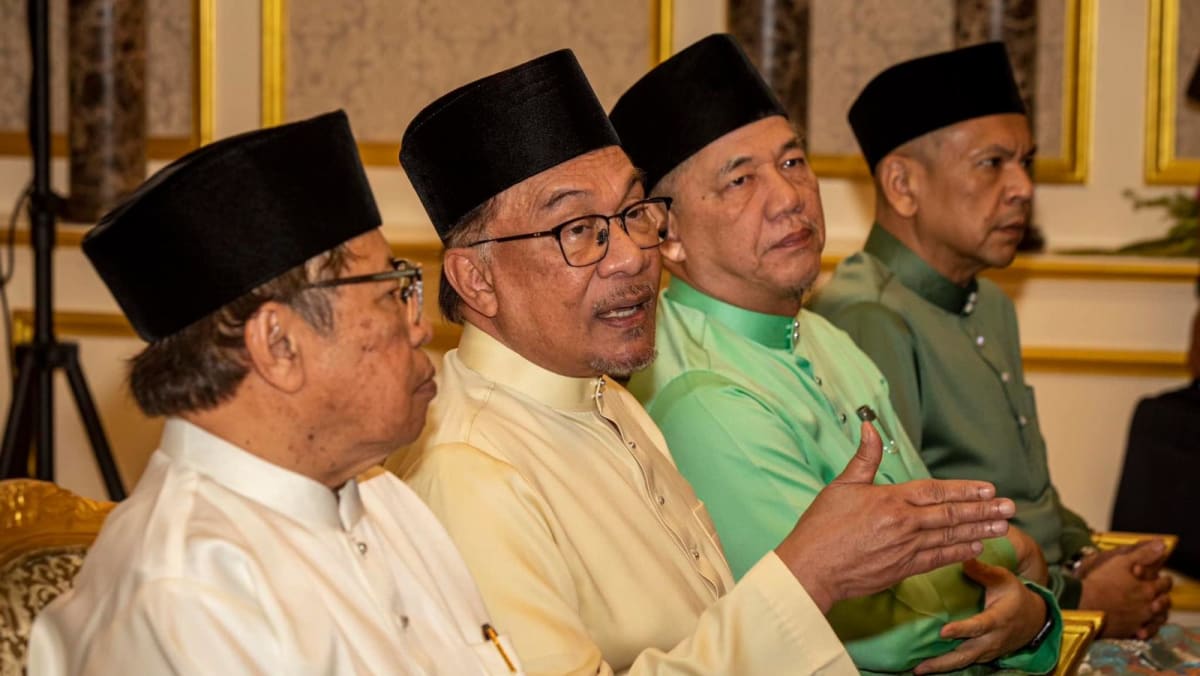Asia
‘Puzzling’: Malaysia’s new rules for Sarawak’s oil and gas sector set to trigger fresh political tensions

Can Different Laws Co-Exist?
The question of whether different laws can co-exist in governing Malaysia’s oil and gas resources has sparked intense debate, particularly between Sarawak and the federal government, with Petronas at the center of the storm. For months, Sarawak has been in hardball negotiations with the Malaysian government and Petronas, the national oil company, over the monopoly granted to Petronas under the Petroleum Development Act (PDA) of 1974. Sarawak, which contributes significantly to Malaysia’s oil and gas production, has long argued that the PDA does not apply to its territory and has taken bold steps to assert its authority. The state has passed its own laws to oversee its oil and gas sector, including appointing Petros, its own oil and gas company, as the sole gas aggregator in February last year. This move directly challenged Petronas’ long-held authority, setting the stage for a clash of legal and regulatory frameworks.
Sarawak, which holds about 60% of Malaysia’s gas reserves and accounts for nearly 90% of the country’s liquefied natural gas (LNG) exports, insists that its laws are valid and necessary to protect its interests. The state has enforced licensing requirements for private oil and gas companies operating within its borders, further complicating the situation. Petronas, on the other hand, operates under the PDA, which grants it exclusive rights over the country’s oil and gas reserves. The tension between these two sets of laws has created uncertainty and confusion, with both sides struggling to find common ground. Despite months of negotiations that began in April last year, the talks have broken down twice, with Petronas suspending all negotiations in December. This impasse has left the industry in limbo, raising concerns among international investors and threatening the stability of Malaysia’s energy sector.
Sarawak’s Push for Greater Control
At the heart of the dispute is Sarawak’s desire for greater control over its hydrocarbon resources. The state has argued that the PDA, which was enacted in 1974, does not apply to it, as it was not a part of Malaysia at the time of the law’s creation. Sarawak joined Malaysia in 1963, and the state claims that its unique history and contributions to the country’s energy sector justify its demand for autonomy over its oil and gas reserves. To assert its authority, Sarawak passed the Distribution of Gas Ordinance in 2016, which requires any party engaged in gas distribution activities within the state to obtain a license from the state government. This law directly challenges Petronas’ authority, as it effectively forces the national oil company to comply with state regulations in addition to federal laws.
The enforcement of Sarawak’s laws has created a challenging environment for Petronas and its subsidiaries. Petronas officials have expressed frustration, stating that the new regulations have introduced significant hurdles. Previously, Petronas operated in Sarawak under the PDA without needing to obtain additional licenses or comply with state-specific procedures. However, with the enforcement of Sarawak’s laws, Petronas and other companies must now navigate a dual regulatory framework. This has not only complicated operations but also created uncertainty among international investors, who are wary of investing in an environment where legal disputes and regulatory ambiguities persist. The situation has become so untenable that Petronas suspended all negotiations with Sarawak in December, leaving the future of the industry hanging in the balance.
Petronas’ Position and the Federal Government’s Role
Petronas has long been the dominant player in Malaysia’s oil and gas sector, and its monopoly under the PDA has been a cornerstone of the country’s energy policy. However, Sarawak’s assertion of its laws has thrown this arrangement into question. Petronas officials have argued that the PDA remains the supreme law governing the country’s oil and gas resources, and any state-level laws that contradict it are invalid. However, Sarawak’s insistence on enforcing its own regulations has created a standoff, with neither side willing to back down.
The federal government, led by Prime Minister Anwar Ibrahim, has attempted to mediate the dispute. Anwar’s administration has pushed for a compromise between Petronas and Sarawak, but efforts so far have been unsuccessful. Senior government officials have acknowledged that the breakdown in negotiations has created confusion and uncertainty, making it difficult for either side to issue definitive statements on the way forward. The government’s challenge is to balance the interests of both Petronas and Sarawak, ensuring that the country’s energy sector remains stable while addressing Sarawak’s demands for greater autonomy.
The Legal and Investment Implications
The conflict between Sarawak and Petronas has significant legal and investment implications. Prominent lawyer and former minister Zaid Ibrahim has warned that the co-existence of two sets of laws—one federal and one state—is unsustainable. Zaid argued that the PDA and Sarawak’s Distribution of Gas Ordinance cannot co-exist, as they create conflicting requirements and jurisdictional ambiguities. This duplication of laws is likely to lead to further conflict and could deter foreign investors, who prioritize legal certainty when making investment decisions.
Zaid Ibrahim has called for a new approach to resolve the dispute. He suggested that the best course of action would be to maintain the status quo, allowing Petronas to continue operating as before, while both parties seek a resolution through the courts. This approach would provide clarity and stability, allowing the legal system to determine which laws take precedence. However, this solution may take time, and the ongoing uncertainty could continue to deter investment in Malaysia’s energy sector.
The Need for a Resolution
The ongoing dispute between Sarawak and Petronas highlights the need for a clear and definitive resolution. The uncertainty created by competing laws has already begun to affect investor confidence, and if left unresolved, could have long-term consequences for Malaysia’s energy sector. Both sides must find a way to reconcile their differences, whether through a negotiated settlement or a court ruling.
As the situation stands, the breakdown in negotiations has left the industry in a state of flux. Petronas and Sarawak’s inability to reach an agreement has created a challenging environment for all stakeholders, from international investors to local communities that rely on the sector for economic opportunities. The federal government’s efforts to mediate have so far been unsuccessful, and the onus is now on all parties to find a way forward that balances competing interests while ensuring the stability of Malaysia’s energy sector.
In conclusion, the question of whether different laws can co-exist in governing Malaysia’s oil and gas resources remains unresolved. The conflict between Sarawak and Petronas has highlighted the complexities of federalism and the challenges of balancing state and federal authority. While Sarawak’s push for greater control over its resources is understandable, the co-existence of conflicting laws is unsustainable and risks undermining the country’s energy sector. A decisive resolution is needed to restore certainty and ensure the continued growth of Malaysia’s oil and gas industry.
-

 Money3 days ago
Money3 days agoConsumer Financial Protection Bureau Adds Error Message To Home Page
-

 Australia1 day ago
Australia1 day agoTropical Cyclone Zelia intensifies to category 2 storm
-

 Money2 days ago
Money2 days agoWinning Content Strategies For Wealth Managers
-

 Asia1 day ago
Asia1 day agoWhat you need to know about 2024 YR4, the asteroid that could hit Earth in about eight years’ time
-

 Entertainment17 hours ago
Entertainment17 hours agoPrince Harry and Meghan Markle’s Best Moments and Photos From the 2025 Invictus Games
-

 Australia11 hours ago
Australia11 hours agoTropical Cyclone Zelia intensifies to category five system off Pilbara coast
-

 Politics1 day ago
Politics1 day agoDozens of religious groups sue to stop Trump admin from arresting migrants in places of worship
-

 Entertainment3 days ago
Entertainment3 days agoEvery Celebrity Who Attended the 2025 Super Bowl: A Guide to the A-Listers at the Big Game











